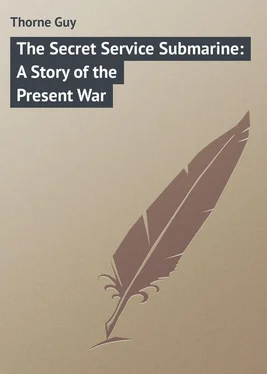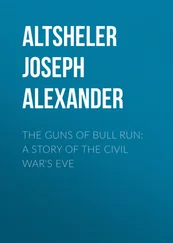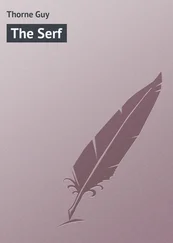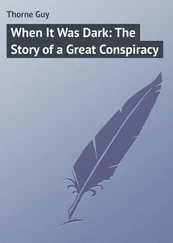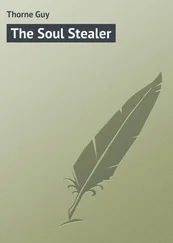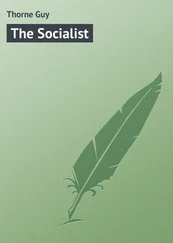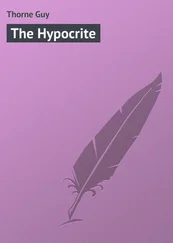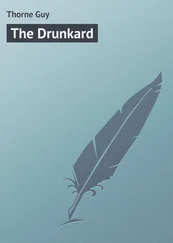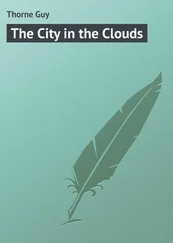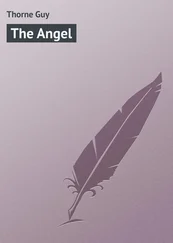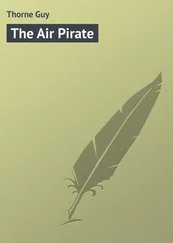Guy Thorne - The Secret Service Submarine - A Story of the Present War
Здесь есть возможность читать онлайн «Guy Thorne - The Secret Service Submarine - A Story of the Present War» — ознакомительный отрывок электронной книги совершенно бесплатно, а после прочтения отрывка купить полную версию. В некоторых случаях можно слушать аудио, скачать через торрент в формате fb2 и присутствует краткое содержание. Жанр: foreign_prose, на английском языке. Описание произведения, (предисловие) а так же отзывы посетителей доступны на портале библиотеки ЛибКат.
- Название:The Secret Service Submarine: A Story of the Present War
- Автор:
- Жанр:
- Год:неизвестен
- ISBN:нет данных
- Рейтинг книги:5 / 5. Голосов: 1
-
Избранное:Добавить в избранное
- Отзывы:
-
Ваша оценка:
- 100
- 1
- 2
- 3
- 4
- 5
The Secret Service Submarine: A Story of the Present War: краткое содержание, описание и аннотация
Предлагаем к чтению аннотацию, описание, краткое содержание или предисловие (зависит от того, что написал сам автор книги «The Secret Service Submarine: A Story of the Present War»). Если вы не нашли необходимую информацию о книге — напишите в комментариях, мы постараемся отыскать её.
The Secret Service Submarine: A Story of the Present War — читать онлайн ознакомительный отрывок
Ниже представлен текст книги, разбитый по страницам. Система сохранения места последней прочитанной страницы, позволяет с удобством читать онлайн бесплатно книгу «The Secret Service Submarine: A Story of the Present War», без необходимости каждый раз заново искать на чём Вы остановились. Поставьте закладку, и сможете в любой момент перейти на страницу, на которой закончили чтение.
Интервал:
Закладка:
Thorne Guy
The Secret Service Submarine: A Story of the Present War
PART I
CHAPTER I
REJECTED FOR SERVICE. MR. JOHN CAREY'S EXPLANATION
On thinking it over, I date the extraordinary affairs which so thrilled England and brought me such undeserved good fortune from the day on which I tried to enlist.
The position was this. My father was an engineer with a small, but apparently thriving, foundry at Derby. My mother died and my father sent me to Oxford, my younger brother, Bernard Carey, being an officer in the Navy. At Oxford, I was one of that perennial tribe of young asses who play what used to be called the "Giddy Goat" in those days with the greatest aplomb and satisfaction to themselves. I was at a good college – Exeter – for originally we were west-country people, and all sons of Devon and Cornwall go to Exeter.
I was immensely strong and healthy. I did not row, but played Rugby football, being chosen to play in the Freshmen's match, and subsequently got my "Blue." I did no reading whatever. My father gave me a more than sufficient allowance, and in my second year, having sprained myself badly, I bought a motor car – an expensive Rolls-Royce – on credit, and became a "blood." I could not play games any more, though I was healthy enough, so I used to go constantly to London "to see my dentist," which, of course, meant dinner at the Café Royal, too many cocktails at the Empire, and a wild rush home in the car to get to College before twelve o'clock at night.
When any musical comedy company visited Oxford, I, in company with my friends, used to invite the ladies of the chorus to tea. I did all the silly things possible, got sent down for a term, and eventually only just managed to scrape through a pass degree, after being ploughed several times in this or that "Group."
Then my father died, and it was found that he had nothing whatever to leave us. His works were in the hands of his creditors – it seems that things had been going wrong for years – and there was I, with a game leg, an excellent taste in such dubious vintages as the Oxford wine merchants provide, a somewhat exact knowledge of ties, waist-coats, and socks, a smattering of engineering which I had picked up from my father purely from a liking of the subject, and, when my bills were paid, exactly £14, 7 s. 3 d.
Knowing nothing whatever of the slightest value to anybody, myself included, I naturally decided to devote my attention to the education of youth. My "Blue," short as the time was that I enjoyed it, would be an asset, I imagined; and, for the rest, to teach urchins their Latin grammar for a few hours a day could not be a very arduous occupation.
Accordingly, I went to see a suave gentleman in the Strand, who received me courteously, but without enthusiasm. This gentleman was one of the mediums by which those who would instruct the young find a field for their activities. I paid him a guinea, I think it was, and he then took down my qualifications.
When I mentioned my "Blue" with pride, he shook his head.
"My dear sir, 'Blues' are now a drug in the market," he said. "Surely you read the daily papers, especially the Daily Wire "?
"No," I replied, "I am no bookworm."
He coughed rather nastily and I began to get irritated with the fellow.
"Then I must explain," he continued, "that there has been a great outcry against over-athleticism in the public schools, in all schools, in fact, and I fear your 'Blue' is not worth …"
"Quite so," I broke in; "'not worth a damn,' you were going to say."
"I was going to say no such thing, Mr. Carey," he replied stiffly. "At any rate, we will do our best for you. You cannot hope for more than a private school at first, and your success in the profession you have – er – chosen, will depend entirely upon your success in a comparatively humble sphere."
A week afterwards, I received two or three little forms telling me to apply to various headmasters.
Prospects were not cheering, and the salaries offered would about have kept me in cigarettes at Oxford. To cut a long story short, I eventually became third master – there were only three of us – in Morstone House School in Norfolk, at a salary of eighty pounds a year and all found – except washing.
Morstone House School was a sort of discreet modern edition of Dotheboys Hall. I do not mean to say, of course, in these enlightened days, that the boys were starved or ill-treated. But everything was cut down to the very margin – to the margarine, as my colleague Lockhart, who was a cripple, and a wit – the Head got him cheap for that – would occasionally remark.
For two years I remained at Morstone, a miserable enough life for an ex-blood, you will say – only there were consolations. One of them, and to me it was a very great one indeed, was that Morstone was situated in a remote village on the east coast, on the edge of vast saltings or sea marshes intersected by great creeks of sullen, tidal water. It was five miles to the nearest little town, Blankington-on-Sea, and as lonely a place as well could be conceived. Nevertheless, these vast marshes stretching for many miles on either side formed one of the finest wild-fowl districts in the whole of England. I was, and always had been, passionately fond of shooting. I had saved my guns from the wreck, and the whole of my leisure time in winter was taken up with perhaps the most fascinating of all sports.
The wild geese would fly at night over the lonely mud-flats with a noise like a pack of hounds in the sky. Duck of all sorts abounded, teal, widgeon, mallard, and the rarer pintail and even the crested grebe. There were plenty of snipe, stint, golden plover and shank – in short, it was a paradise for the sportsman. I kept fit and well from the first day of August to the last day of February. My work at the school was easy enough, and I had an absolutely absorbing pursuit to take me out of myself and make me forget what a very sorry part I was playing in the battle of life – for I think it only due to myself to remark that I was a young ass without being a fool. This is a nice distinction, but there are those who will understand my meaning.
The second consolation – I do not put it second because it was the lesser of the two, but from a somewhat natural reluctance to speak of it until the last necessary moment – was Doris.
This brings me to that extraordinary man, my chief. I am not going to discount the interest of this narrative by saying too much of this gentleman at the outset. His name is familiar enough to England now. I will merely describe him and his surroundings.
The Headmaster of Morstone House School was Doctor Upjelly. His qualifications for the position he held were, to say the least of it, peculiar. He was "Doctor" by virtue of a German degree obtained during what must have been a singularly misspent youth – they are coarse brutes at these German universities, or I should be the last to refer to early indiscretions! – at Heidelberg. Love of teaching he had none. Love of money seemed to be his predominating characteristic, though he was as keen on wild-fowling as I was myself. This was the only thing that made me regard him as human – that is to say, at the beginning.
What Doctor Upjelly's early life had been, nobody knew. He had travelled much abroad, at any rate, and spoke French, German, and Italian fluently. He had been in England for a great many years, the last six of which he had spent at Morstone House. He had purchased the school from the decayed clergyman who ran it before him, and seemed to be perfectly contented with his life, though he often made visits to London and occasionally entertained visitors at Morstone. He had married an Englishwoman in Germany, we always understood, a lady with two daughters by a former marriage, Doris and Marjorie Joyce. Doris was twenty-two and Marjorie twenty-one. They lived at Morstone and kept house for their stepfather, supervised the school accounts, and generally did work which ought to have been done by the matron, a sinister old hag called Mrs. Gaunt, and apparently the only person in whom Doctor Upjelly ever confided.
Читать дальшеИнтервал:
Закладка:
Похожие книги на «The Secret Service Submarine: A Story of the Present War»
Представляем Вашему вниманию похожие книги на «The Secret Service Submarine: A Story of the Present War» списком для выбора. Мы отобрали схожую по названию и смыслу литературу в надежде предоставить читателям больше вариантов отыскать новые, интересные, ещё непрочитанные произведения.
Обсуждение, отзывы о книге «The Secret Service Submarine: A Story of the Present War» и просто собственные мнения читателей. Оставьте ваши комментарии, напишите, что Вы думаете о произведении, его смысле или главных героях. Укажите что конкретно понравилось, а что нет, и почему Вы так считаете.
